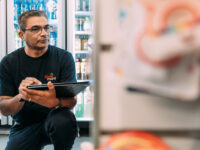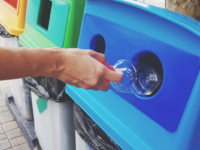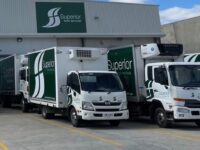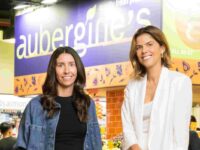
Retail’s largest concerns, including at Ikea, David Jones Food, national produce distributor, In2food and many others, are making significant reductions in food wastage while improving food quality and helping the environment.
And the reductions have not been achieved by hurting their bottom line with cost effective, environmentally-friendly practices now available in Australia.
The problem
If a retailer or organisation is putting food waste into landfill, they’re part of the problem, which is, one third of all food produced globally is lost or wasted, according to the Food and Agriculture Organisation of the United Nations (FAO).
This equates to around 1.3 billion tonnes of food, costing the global economy close to $940 billion each year. FAO research says eight per cent of greenhouse gases heating the planet are caused by food waste, making wastage the third largest emitter of greenhouse gases, after USA and China.
Closer to home, the Australian Government estimates food waste costs the Australian economy $20 billion each year.
According to the latest Deloitte Fresh Food Analytics report, the quality of fresh products is now one of the most influential factors for where consumers choose to shop, placing product provenance as a key driver of profitability in retail and food service.
Regardless of purchasing channel, online or offline, Deloitte says customers now expect to find high-quality, healthy and fresh products. But many retailers and food suppliers continuously struggle to manage and improve freshness, contributing to an inconsistent customer experience, lost sales, increased costs, and ultimately food waste.
Though the mitigation of food waste presents a tough challenge, Deloitte says new game-changing technologies and advanced analytics techniques have been developed to help retailers make the necessary changes needed for tackling the issue.
Simple solutions
But do Aussie businesses care enough about the problem to take effective action? According to enrich360™ CEO Dean Turner, the issue is generally not taken seriously, but there are major retailers leading the way Down Under. And it comes down to a simple formula – avoid or reuse and if not then recycle.
Turner points to Ikea and David Jones as leaders in reducing food waste, adding Coles and Woolies have made inroads in food reuse with Second bite, Oz Harvest and Foodbank.
Ikea Richmond in Melbourne’s CBD was the
first to implement the enrich360® Program in April 2018 and has since diverted
of over 80 tonnes of food waste.
The diversion has created over eight tonnes of fertiliser, which has all been
used on Victorian Farms to improve soil and help grow better more nutritious
food.
Food waste from the Ikea cafe and restaurant is collected and put into an organics recycling machine, which turns the leftover organics into biomass overnight. The biomass is collected by the enrich360 team and is taken to the Ikea fruit and vegetable suppliers as fertiliser for their farms.
According to enrich360, the process allows farmers in most states to receive the outputs directly from the machines to use as a slow release fertiliser and it also creates a cleaner, safer way for composters to receive food waste as a nutrient source.
The process reduces the volume of food waste by up to 93 per cent, leaving it sterile and pathogen–free meaning food waste can be collected from Ikea between two-three days per week with collections completed by In2food produce supply trucks, which use reverse logistics – so no large smelly rubbish trucks.
Enrich360 says Ikea was one of the first big food companies in Australia to use the program, and uptake is increasing with many sectors now closing the loop between food waste and suppliers.
PwC’s report on the challenges of worldwide food security, says by 2050, the global population will be 35 per cent larger than today – reaching almost 10 billion. Consequently, global food production will need to double in order to meet new, growing demand. This will also see a marked increase in food wastage.
But not all food waste belongs in waste bins, according to enrich360 – which says reusing and recycling the optimum amount of refuse is always the most rewarding outcome for a business.
Learn more the food waste hierarchy, Ikea and David Jones’ food waste projects by visiting the enrich360 website or email info@enrich360.com.au]














